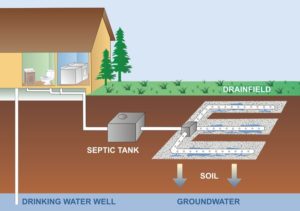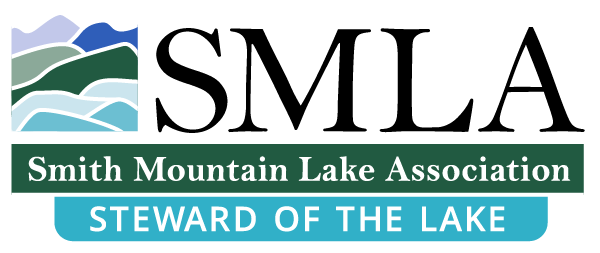
Environmental Education
Adult and Youth Education:
The more we understand, the more we can protect the waters of Smith Mountain Lake.
Creating awareness and providing learning opportunities allows SMLA to extend knowledge and action outward through our community with the result of better lake protection.
SMLA’s volunteer education force reaches out to learners of all ages in a variety of ways to share knowledge that will result in action. The SMLA Environmental Education Committee is comprised of members of SMLA, local educators, retired teachers, and Virginia Master Naturalists and Master Gardeners who are concerned about the environment of our lake community. Our partnerships strengthen our work and expand our reach.
During the pandemic we have been harnessing virtual opportunities, and we have focused on assisting other SMLA committees with sharing their messages.
Once we can return to in-person experiences, the SMLA Education Committee will continue its watershed education in area schools—particularly the Creek Week program in partnership with the Western Virginia Water Authority. This program brings all Franklin County 6th graders to the creek for water quality testing and watershed education. Additionally, we will continue previous partnerships and develop new ones in order to better support existing water education initiatives.
We can start planning for our future in-person education now. Call the SMLA office at (540) 719-0690 to join the Education Committee.
A Taste of Virtual Learning
What Happens on the Watershed Affects the Water:
Our partner, the Western Virginia Water Authority, has produced a number of water education videos. Check out these two videos featuring SMLA Board Member and WVWA educator, Tara Poelzing. These instructive videos help you – the home manager and land user – understand that what you do on the watershed and around your home can have a dramatic effect on the quality of our lake water.
Septic System Education:
The Smith Mountain Lake Association (SMLA) is helping the Virginia Department of Health (VDH) to spread the word about septic systems which can directly impact the health of the Lake.
VDH does not require activities in conjunction with the buying or selling of properties with septic systems. However, buyers, sellers, and lenders often have questions concerning septic systems. You can find some helpful information below.

How Septic Systems Work:
The first step is to understand how septic systems work and the property owner’s responsibilities.
Types of Septic Systems:
Once you understand how septic systems work in general, you will want to know exactly what type of septic system serves the property in which you are interested.
- Conventional Onsite Sewage System (COSS) – a treatment system consisting of one or more septic tanks with gravity, pumped, or siphoned conveyance to a gravity subsurface drainfield. A typical COSS in Virginia consists of a sewer line, septic tank, conveyance line, distribution box, header lines, and multiple absorption trenches. In most cases these components are not visible from the surface.
- Alternative Onsite Sewage System (AOSS) – a treatment system that is not a conventional onsite sewage system. A typical alternative system in Virginia consists of a sewer line, septic tank/trash tank, treatment unit, pump chamber, conveyance line, distribution system, and absorption field (trenches, pad, drip tubing, etc.). However, the exact set of components that make up your system will be site specific. These systems typically require annual maintenance from a licensed service provider.
- Alternative Discharge System – a treatment system that typically discharges directly to a dry ditch or stream. Operation and maintenance of direct discharge systems are covered under separate regulations and require a permit from the Virginia Department of Environmental Quality (DEQ) in addition to the VDH permit.
Property Purchase Considerations:
- Consult the EPA’s New Homebuyer’s Guide to Septic Systems to learn more about care and maintenance of an onsite sewage system.
- VDH offers a clearinghouse of septic system information via their Onsite and Well Information for Virginia Citizens site.
- Consult VDH’s What You Should Know When Buying a House with an Onsite System to learn more about the following:
- Permits
- Inspection Reports
- Operation Permits
- As-Built Drawings
- Operation & Maintenance Manual & Reports
- Enforcement Action Records
- Deed Search
- Real Estate Inspections
Maintenance of Residential Systems:
Each type of septic system has specific maintenance instructions and requirements. VDH offers guidelines for the care and maintenance of a variety of types of systems including alternative onsite sewage systems (AOSS) and alternative discharging sewage systems. Each county in Virginia may have additional maintenance or pump out requirements.
Franklin County requires that septic tanks and/or drain fields that are located within 500 feet of the 795 foot contour of the shores of Smith Mountain Lake be pumped out at least once every five years unless one or more of the following are met: (a) an inspection by a qualified handler finds the tank to contain less than one-third of its capacity; or (b) qualified documentation verifies the property was unused for 36 consecutive months within a given five year period. Contact Franklin County for the specifics of these exceptions. Reference Chapter 17, Section 17-8 of the Franklin County Code.
For additional information regarding Bedford, Franklin, or Pittsylvania septic system requirements, please contact the following County Health Departments:
Bedford County: (540) 586-7952
Franklin County: (540) 484-0290
Pittsylvania County: (434) 432-7232
Join SMLA Today
Click to learn more about how you can help Smith Mountain Lake and its community.


